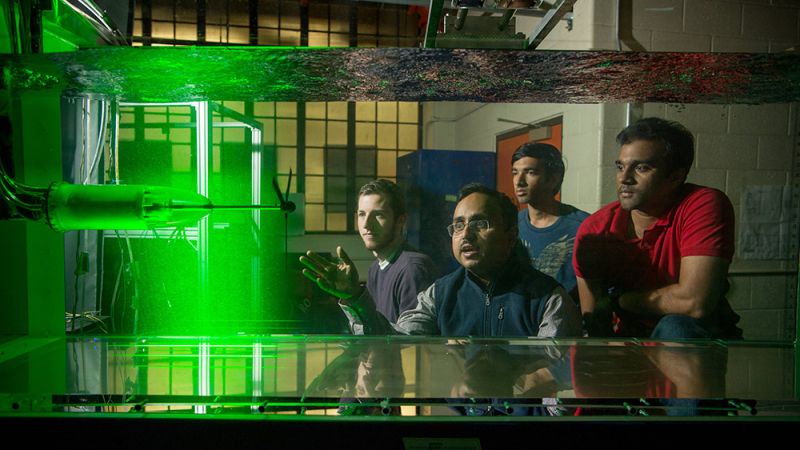
The minor in energy engineering touches upon the technologies associated with the transformation and use of energy in various forms. Since every sector of engineering and the economy require energies of one form or another, the courses included in this minor program will permit student exposure to fossil, nuclear and renewable energy technologies. The mechanical engineering curriculum provides the fundamental knowledge in thermodynamics, fluid mechanics and other related areas leading up to the courses for the energy engineering minor. The courses offer a wide variety of topics including fundamental, analytical and design aspects of energy conservation as well as various forms of energy used in power generation, transportation and industry.
The minor in energy engineering requires a minimum of 15 credits, which must be taken from MEM offerings. The minor in energy is primarily intended for ME Majors but students with other majors, particularly Chemical engineering will be able to take some or all the related courses. Four courses are required with some degree of choice and an additional course must be selected from a broader set.
Required course - Select one of the following
Select one of the following: 3
ME 304 Thermodynamics II
ME 331 Advanced Fluid Mechanics
Depth Requirement
Select at least three of the following: 9
ME 360 Nuclear Reactor Engineering
ME 362 Nuclear Fusion and Radiation Protection
ME 364 Renewable Energy
ME 366 Power Generation Technologies
Breadth Requirment
Select one of the following: 3
ME 322 Gas Dynamics
ME 323 Reciprocating & Centrifugal Engines
ME 343 Control Systems
ME 368 Fundamentals of Energy Efficiency Practicum
CHE/ME 376 Energy: Issues & Technology
Other Energy-related 300-level courses with the approval of the ME Minor Chair.
Total Credits 15
- Contact: Arindam Banerjee, Mechanical Engineering & Mechanics
- Energy Technical Minor Declaration Form
- More Information: Energy Engineering [minor info towards bottom of the page]
